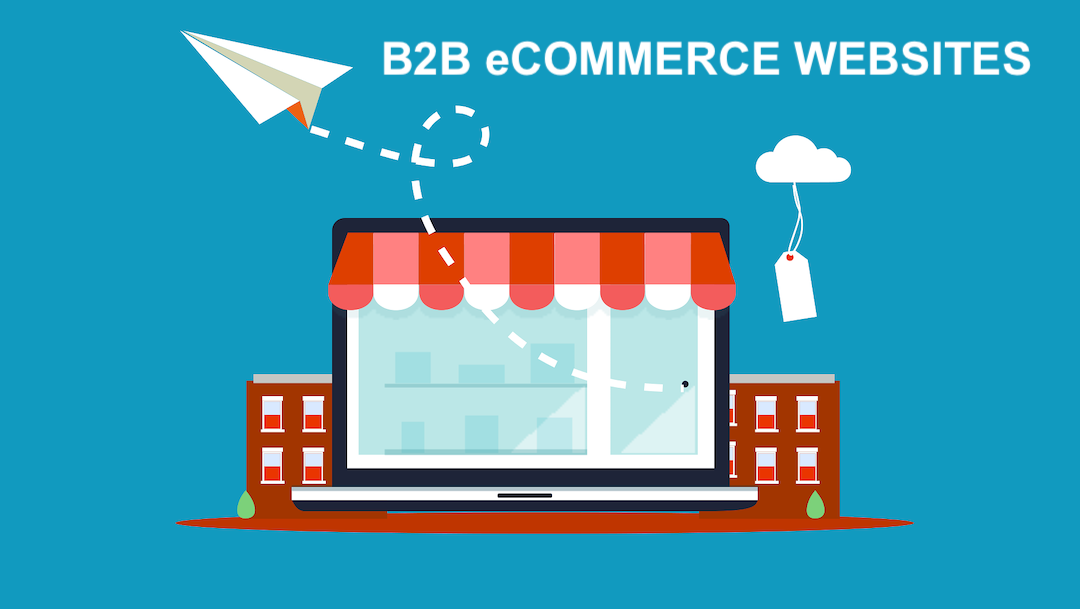
In 2024, the eCommerce landscape is more dynamic and competitive than ever. As businesses strive to capture the attention of online shoppers, selecting the right platform for your online store is paramount. The ideal eCommerce platform supports your business needs and offers scalability, security, and an exceptional user experience. With a myriad of options available, it can be overwhelming to find the perfect fit.
This guide will introduce you to the best eCommerce platforms of 2024, showcasing their features and benefits to help you find the perfect eCommerce web solutions for your online store. Whether you're a budding entrepreneur or a seasoned retailer, these platforms will empower you to build a thriving online presence.
What Is an eCommerce Platform?
An eCommerce platform is a software application that allows businesses to create and manage an online store. Think of it as the digital equivalent of a physical storefront. It provides all the tools and features needed to sell products or services online, including setting up a website, managing inventory, processing payments, and handling customer orders.
Here are some key components of an eCommerce platform:
- Website Builder: This helps you design and customize your online store without knowing how to code. You can choose from templates and themes to match your brand's look and feel.
- Product Management: Easily add, update, and organize your products. This includes setting prices, writing descriptions, uploading images, and managing stock levels.
- Shopping Cart and Checkout: These features enable customers to add items to their cart and complete their purchases. The checkout process is streamlined to be as simple and secure as possible.
- Payment Processing: An eCommerce platform integrates with payment gateways (like PayPal, Stripe, etc.) to accept customer payments. It ensures that transactions are safe and encrypted.
- Order Management: This helps you keep track of customer orders, manage shipping, and handle returns or refunds.
- Security: Protecting customer data is crucial. eCommerce platforms come with built-in security measures to safeguard sensitive information.
- Marketing Tools: Many platforms offer tools to help you promote your store, such as Search Engine Optimization (SEO) features, email marketing, and social media integration.
An eCommerce platform is your all-in-one solution for running an online business. It simplifies setting up and managing an online store, allowing you to focus on growing your business and serving your customers.
Types of eCommerce Platforms
When diving into online selling, it's essential to understand the different types of eCommerce platforms available. Each type caters to business needs, technical skills, and budget considerations. Here’s a user-friendly guide to the main types of eCommerce platforms:
Hosted eCommerce Platforms
Overview: These are fully managed solutions where the platform provider handles the hosting, security, and maintenance.
Key Features:
- Ease of Use: No technical skills are required for setup and management.
- Scalability: This can easily grow with your business.
- Support: Often comes with dedicated customer support.
Examples: Shopify, BigCommerce, Volusion.
Why Choose Hosted Platforms: Ideal for small to medium-sized businesses without technical expertise, as they offer a hassle-free, all-in-one solution.
Self-Hosted eCommerce Platforms
Overview: These platforms require you to host the software on your server and manage all technical aspects, including security and updates.
Key Features:
- Customization: Complete control over the design and functionality of your store.
- Cost-Effective: Often no ongoing subscription fees, only hosting and development costs.
- Community Support: Large communities providing themes, plugins, and support.
Examples: WooCommerce (WordPress), Magento, PrestaShop.
Why Choose Self-Hosted Platforms: Best for businesses with technical expertise or needing extensive customization and control over their online store.
Open-Source eCommerce Platforms
Overview: These platforms provide the source code for free, allowing for unlimited customization and flexibility.
Key Features:
- Flexibility: Modify the platform to meet your exact needs.
- Community Contributions: Benefit from contributions and extensions created by a global community.
- Cost Control: No licensing fees, but costs may include hosting, development, and maintenance.
Examples: OpenCart, PrestaShop, Magento (Community Edition).
Why Choose Open-Source Platforms: Ideal for businesses with technical resources that need a customizable, scalable solution without ongoing subscription fees.
Cloud-Based eCommerce Platforms
Overview: Similar to hosted platforms but specifically hosted on the cloud, offering high scalability and reliability.
Key Features:
- Scalability: Easily handle large traffic volumes without performance issues.
- Automatic Updates: Always running the latest version with minimal downtime.
- Security: Robust security measures are provided by the cloud service provider.
Examples: Shopify Plus, BigCommerce Enterprise.
Why Choose Cloud-Based Platforms: Suitable for growing businesses or enterprises that require high performance, scalability, and minimal maintenance.
Headless eCommerce Platforms
Overview: These platforms decouple the front-end and back-end, allowing for greater flexibility in how the store's front-end is presented.
Key Features:
- Flexibility: Use any front-end technology to create unique customer experiences.
- Speed: Often faster load times and better performance.
- Customization: Tailor every aspect of the customer journey.
Why Choose Headless Platforms: Ideal for businesses looking for highly customized, cutting-edge web experiences and willing to invest in development.
Marketplace Platforms
Overview: These platforms allow you to sell products on a larger marketplace alongside other vendors.
Key Features:
- Visibility: Access to a large customer base already visiting the marketplace.
- Ease of Setup: Simple to list products and start selling.
- Payment Processing: Handled by the market, ensuring security and simplicity.
Examples: Amazon, eBay, Etsy.
Why Choose Marketplace Platforms: Perfect for businesses looking to quickly reach a broad audience without the complexities of running their store.
Choosing the Right Type for Your Business
Small Businesses and Startups: Hosted platforms like Shopify or cloud-based solutions offer easy use and scalability.
Medium to Large Businesses: Self-hosted or open-source platforms like Magento or WooCommerce provide the flexibility needed for growth.
Tech-Savvy Businesses: Open-source or headless platforms offer extensive customization and control.
Sellers Looking for Quick Setup: Marketplace platforms like Amazon or eBay provide instant access to a
The 10 Best eCommerce Platforms in 2024
As the eCommerce industry evolves, choosing the right platform for your online store becomes increasingly essential. Each platform offers unique features and capabilities designed to meet various business needs. Here are the 10 best eCommerce platforms in 2024, explained in a user-friendly way:
1. Shopify
Overview: Shopify is a versatile and user-friendly platform perfect for businesses of all sizes. It offers comprehensive tools to build and manage your online store.
Key Features:
- Easy-to-use website builder with customizable templates.
- Integrated payment processing with multiple payment gateways.
- Robust inventory management and order tracking.
- Extensive app store for additional functionality.
Why Choose Shopify: Ideal for beginners and experienced users alike, Shopify provides a seamless setup process and excellent customer support.
2. WooCommerce
Overview: WooCommerce is a powerful eCommerce plugin for WordPress, making it a great choice if you're already familiar with this popular content management system.
Key Features:
- Fully customizable with a wide range of themes and plugins.
- Supports physical and digital products.
- Strong SEO capabilities thanks to WordPress integration.
- Extensive community support and resources.
Why Choose WooCommerce: Perfect for those who want complete control over their online store's design and functionality.
3. BigCommerce
Overview: BigCommerce is known for its scalability and advanced features, making it suitable for growing businesses and large enterprises.
Key Features:
- Highly scalable with built-in features for large product catalogs.
- Multi-channel selling (e.g., Amazon, eBay, and social media).
- Advanced SEO and marketing tools.
- No transaction fees on any plans.
Why Choose BigCommerce: Ideal for businesses planning significant growth and needing robust, out-of-the-box functionality.
4. Magento (Adobe Commerce)
Overview: Magento is a highly flexible and powerful platform, now part of Adobe, tailored for businesses with complex needs and high customization requirements.
Key Features:
- Extensive customization options.
- Advanced SEO, marketing, and catalog management tools.
- Scalable for large businesses with high traffic.
- Robust security features.
Why Choose Magento: Best for businesses with technical expertise looking for a customizable and scalable solution.
5. Squarespace
Overview: Squarespace is known for its beautiful design templates and ease of use, ideal for creative businesses and small to medium-sized stores.
Key Features:
- Stunning, professionally designed templates.
- Integrated eCommerce features for selling products and services.
- Built-in marketing tools, including email campaigns.
- Mobile-optimized and user-friendly.
Why Choose Squarespace: Perfect for those who prioritize design and simplicity in setting up their online store.
6. Wix eCommerce
Overview: Wix is a beginner-friendly platform with drag-and-drop capabilities, making creating a professional online store easy.
Key Features:
- Intuitive drag-and-drop website builder.
- Variety of templates tailored for eCommerce.
- Integrated marketing and SEO tools.
- Secure payment processing and order management.
Why Choose Wix eCommerce: Ideal for small businesses and individuals looking for a quick and easy way to launch their online store.
7. PrestaShop
Overview: PrestaShop is an open-source eCommerce platform that offers extensive customization options and a strong community of developers.
Key Features:
- Fully customizable with a range of themes and modules.
- Multi-language and multi-currency support.
- Strong community support and extensive documentation.
- No subscription fees (self-hosted).
Why Choose PrestaShop: Best for tech-savvy users who want a customizable and cost-effective solution.
8. OpenCart
Overview: OpenCart is another open-source platform known for its simplicity and flexibility, suitable for small to medium-sized businesses.
Key Features:
- Easy to set up and use with a user-friendly interface.
- Extensive range of extensions and themes.
- Multi-store management from a single interface.
- No ongoing subscription fees (self-hosted).
Why Choose OpenCart: Great for small businesses seeking a straightforward, flexible, and cost-effective platform.
9. Weebly eCommerce
Overview: Weebly, now part of Square, offers a simple drag-and-drop builder and integrated payment solutions, ideal for small businesses and entrepreneurs.
Key Features:
- Easy-to-use drag-and-drop builder.
- Integrated with Square for seamless payment processing.
- Variety of eCommerce templates.
- Built-in marketing and SEO tools.
Why Choose Weebly eCommerce: Perfect for small businesses and startups looking for an easy setup with integrated payment options.
10. Volusion
Overview: Volusion is a user-friendly platform focusing on simplicity and strong customer support, making it suitable for small to medium-sized businesses.
Key Features:
- Easy-to-use store builder with customizable themes.
- Built-in SEO and marketing tools.
- No transaction fees on any plans.
- Responsive customer support.
Why Choose Volusion: Ideal for businesses looking for a straightforward platform with excellent customer service.
Conclusion
Choosing the best eCommerce platform for your online store in 2024 is a crucial decision that can significantly impact your business's success. With options like Shopify, WooCommerce, BigCommerce, Magento, and many more, there's a platform to suit every business need, from small startups to large enterprises.
Each platform offers unique features, from user-friendly interfaces and beautiful design templates to robust customization options and advanced marketing tools. Whether you're looking for ease of use, scalability, or extensive customization, there's an eCommerce solution tailored for you.
By understanding the strengths and capabilities of each platform, you can make an informed choice that aligns with your business goals, technical skills, and budget. Investing in the best eCommerce platform for your online store will set you on the path to creating a thriving online business in 2024 and beyond.
Related Posts
Share this post
Leave a comment
All comments are moderated. Spammy and bot submitted comments are deleted. Please submit the comments that are helpful to others, and we'll approve your comments. A comment that includes outbound link will only be approved if the content is relevant to the topic, and has some value to our readers.



Comments (0)
No comment